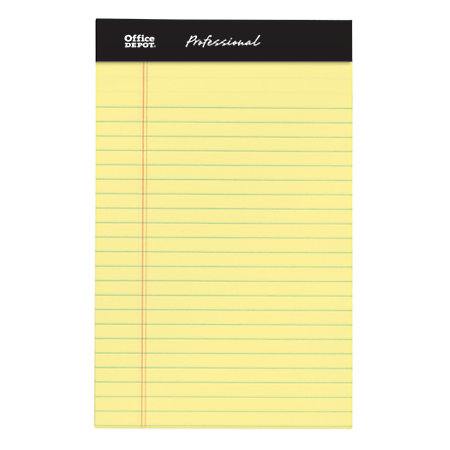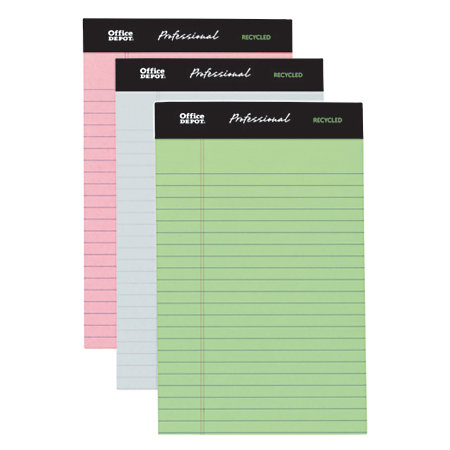An analog thinker am I, so I prefer developing ideas with pencil-on-paper, especially gaming ideas. However, I have spent years trying to find a style of notebook that didn't frustrate me somehow. Partly this was because I'm left-handed thus traditional formats are a struggle to handle, but also I wanted something that was malleable yet durable, portable yet large enough to hold a couple full paragraphs per page and economical without being shoddy. The usual string of contradictions, I suppose.
Turns out the best solution (so far) is a prosaic one: 5" x 8" junior legal pads, specifically Professional Junior style with double-thick backboards (and a self-contrary label of great amusement).
 |
| My preferred brand. |
 |
| Someday I'll splurge on the fancy colors. |
I think these things are great, avoiding all the hassles I've had with binders, journals, disc-spines and whatever. First, with the binding on top my crocked writing hand isn't always bumping into a spine. They're small enough I can fit them into the side-pocket of any shoulder bag and also pop them in a ziplock to waterproof them. I can easily rip out pages when I need a scratch sheet or want to yank out ideas for development, yet I haven't had any problem with pages falling off (yet). A single page is big enough to hold a character, location or even a succinct scenario but small enough I can brainstorm at a train station or in a lobby.
A fun side effect is that, since they come in cheap packs of eight or more, I've taken to just jumping to a new pad when I start to develop a new large concept like a whole game or campaign. After the initial burst of brainstorming I leave the pad on my home desk and, if I have later ideas, I rip them out of my current notepad and put them under the previous brainstorming pad, a nice process of simple organization. Also, it's finally gotten me in the habit of regularly harvesting notes from my carry bag so I'm not going to misplace them again to a another lost or stolen bag.
 |
| The tools in action. |
My only complaint is that I'd prefer graph grids so I could make maps easier, but Professional Junior Legals pads are only conveniently available in lined format. Grid pads do exist, but they aren't stocked in local stores and as far as I found don't have the double-thick backing.
 |
| *sigh* |
If you're curious about my preferred writing implement, it's a mechanical pencil using 1.3mm lead, specifically an over-sized Paper Mate model with a triangular profile. Cheap but durable and refillable. Really easy to grip, doesn't cramp my hand, the sturdy lead doesn't break and it literally forces me to think in broad strokes.



